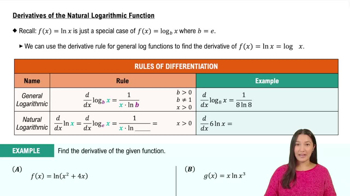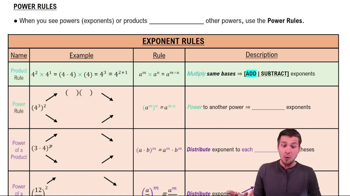Exponential growth rates
b. Compare the growth rates of eˣ and eᵃˣ as x→∞ , for a > 0.
 Verified step by step guidance
Verified step by step guidance Verified video answer for a similar problem:
Verified video answer for a similar problem:



 5:53m
5:53mMaster Finding Differentials with a bite sized video explanation from Patrick
Start learning